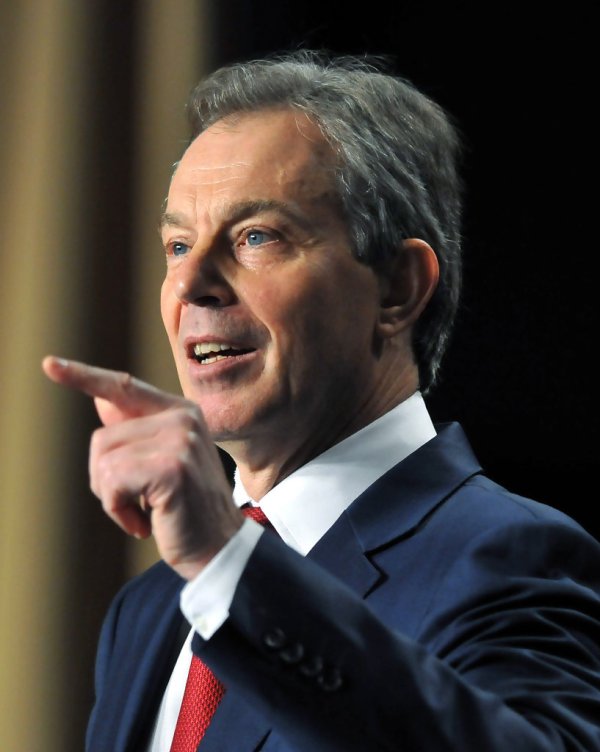Winston Churchill received a State Funeral in January 1965 while Lady Thatcher received a Ceremonial one last month. With these precedents in mind, surely Tony Blair, on his death, should be considered for a Ceremonial Funeral himself?
It may seem a little premature to speculate about Tony Blair’s funeral arrangements in the month of his sixtieth birthday. But it certainly isn’t unreasonable. No, Blair cannot claim to have been Britain’s first woman Prime Minister. But in most respects, he was a more successful Prime Minister than Lady Thatcher was. Consider:
- Popularity when in power: Blair and Thatcher both won three election victories each. Thatcher’s majorities were 43, 144 and 100. Blair’s were: 179, 167 and 66. Both leaders saw their share of the vote decline in each election but it is clear Blair’s majorities were larger on average. Blair was also notably more popular than Thatcher while in power if you look at opinion polls. Labour were rarely ever behind in the polls during the first half of Blair’s time in office (1997-2002) and were never very unpopular. Thatcher’s Tories were usually behind in the polls during her tenure (despite her election wins) and she was one of the most unpopular Prime Ministers on record in 1980-81 and 1990. Popularity isn’t everything, of course. However, the enduring nature of Labour’s poll lead under Blair, surely suggests he was doing something right.
- Peace in Northern Ireland: The peace process (such as it was) got nowhere under Thatcher. Under Major, progress was made, the main achievement of his largely disastrous premiership. This stalled, however, largely because of Tory dependence on the Ulster Unionists for parliamentary support. Thanks to Blair and the late Mo Mowlam, the Good Friday Agreement has left a legacy of peace which has endured to this day. It is one of the greatest achievements of any British Prime Minister.
- A decade of prosperity: admittedly, Blair inherited a better economy in 1997 than Thatcher did in 1979. Despite this, Thatcher’s policy of monetarism wrecked the UK economy in the early 80s and had it not been for North Sea oil, it might not have recovered. After an unsustainable boom, the economy was again on the slide when Thatcher left office in 1990. Blair deserves credit for overseeing a golden age of prosperity and growth for a full decade.
- Crime: Crime more than doubled during the Thatcher years. It fell by over 40% under Blair and Brown. Even David Cameron admitted this, making a nonsense of his own “Broken Britain” claims in the 2010 election.
- Homelessness: This also doubled under Thatcher, largely because of the catastrophic Care in the Community scheme. Homelessness fell under Blair.
- The NHS undeniably suffered under Thatcher and undeniably benefitted from the extra expenditure of the Blair years. Customer satisfaction surveys confirm this.
- Minimum wage, devolution, civil partnerships: The Blair Government oversaw all these changes in the face of Toy opposition. Unlike under Thatcher, the UK became a more tolerant, civilised place. And there was no New Labour equivalent to the Poll Tax.
- Thatcher became eccentric in her later years in office referring to herself with the royal “we” (as in “We are a grandmother”) and publicly bullying her colleague, Geoffrey Howe. There are no such accounts of bad behaviour from Blair.
Conclusions.
Of course, not everything about the Thatcher years was bad and everything about the Blair years good. On the issue of Iraq, Blair was at least as divisive as Thatcher. Thatcher achieved great victories in the South Atlantic. Reducing union power was undoubtedly necessary but too brutally done. Thatcher changed the UK more towards how she wanted it in her eleven and a half years than Blair did in his ten. Spin and rivalry with Gordon Brown too often hampered Blair.
However, surely the measure of a great leader is in what they achieved for their nation? Under Thatcher, crime rose, unemployment soared, the NHS declined, homelessness and rioting proliferated and society grew more selfish and violent. Under Blair, the opposite to all these things happened. And peace in Northern Ireland was achieved.


